




 |
   |
 |
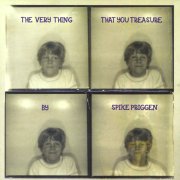 |
The Very Thing That You Treasure (2001, 59.53) ***/T½ |
|
| Every Broken Heart Alright She Used to Be My Baby Yesterday The Right Thing Outtasight What Yer Missing Listening to Me |
Nothing Look it Up I'm in Love So Good to See You unlisted track |
|
Current availability:
Mellotron used:
Spike Priggen seems to specialise in country-flavoured singer-songwriter stuff, sometimes with a Byrdsian edge to it (maybe it's the 12-string). The Very Thing That You Treasure By Spike Priggen, to give it its full title, is OK, but lacks those killer songs that would elevate it from the morass of similar stuff that clutters up the world's second-hand racks. That probably sounds unnecessarily harsh - it's not a bad album, just not far enough above 'average', although the country-rock fans amongst you may disagree. Thankfully, Priggen does up the pace occasionally, principally on What Yer Missing, which sports a guitar riff straight out of the 'class of '77' punk songbook, while Look It Up also sports a minor cojones injection.
Dean Falcone plays Mellotron on two tracks; The Right Thing and So Good To See You are typically lovelorn countryish ballads, both with polyphonic flute parts throughout. There's a lengthy gap after So Good To See You, culminating in a hilariously stumbling, incoherent radio ad from a hillbilly removal company, including the line 'the very thing that you treasure', followed by a superb Spinal Tap-style studio argument, culminating in a hidden track with what sounds slightly like another Mellotron flute part, but isn't. The album timing above is minus the gap, but includes the extra stuff at the end, so the actual amount of music is nearer forty minutes.
See: Samples etc. | Dumptruck
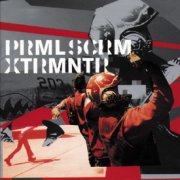 |
Xtrmntr (2000, 60.31) ***½/TT½ |
|
| Kill All Hippies Accelerator Exterminator Swastika Eyes (Jagz Kooner Mix) Pills Blood Money Keep Your Dreams Insect Royalty |
MBV Arkestra (if They Move Kill 'em) Swastika Eyes (Chemical Brothers Mix) Shoot Speed/Kill Light |
|
Current availability:
Mellotron used:
Primal Scream started off as typical indie, before mutating into a sort of indie Stones - all raunchy guitars and bad attitude; since then, they haven't made two albums alike, which has to be applauded, given the competition. 2000's Xtrmntr (the band are credited on the sleeve as 'Prmlscrm', by the way) was their techno album; all beats, loops and samples, not to mention rather embarrassing Bobby Gillespie raps on Blood Money and Insect Royalty. Sorry, mate, white boy rap just doesn't cut it. Now, while I wouldn't actually choose to sit down and listen to this again, it's a brave experiment and miles better than yet another Oasisalike rehash (see: Ocean Colour Scene).
The Mellotron strings on opener Kill All Hippies certainly sound real; very wobbly, with some pitchbend thrown in for good measure, but the ascending line on the first version of Swastika Eyes has a note that's held way beyond the eight-second limit, but it's possible that it's a synth fading in as the Mellotron fades out. Very hard to tell. Keep Your Dreams has some near-inaudible flutes, then there's a different strings part on the second version of Swastika Eyes (so how many 'rock' bands actually put two different mixes of a track on their album, as against a single?).
So, while I don't personally like the music, many do and I don't feel inclined to slag Xtrmntr off just because I don't like it very much. There's some passable Mellotron work, too, but I wouldn't really buy it for that alone.
See: Samples etc.
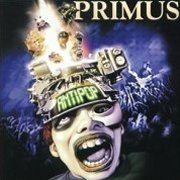 |
Antipop (1999, 63.15) ***/T |
|
| Intro Electric Uncle Sam Natural Joe Lacquer Head Antipop Eclectic Electric Greet the Scared Cow Mama Didn't Raise No Fool |
Dirty Drowning Man Ballad of Bodacious Power Mad Final Voyage of the Liquid Sky Coattails of a Dead Man The Heckler |
|
Current availability:
Chamberlin used:
Primus seem to have been around for ever; they weren't a new band when they supported the mighty Rush in 1992 and Antipop is their sixth album in a decade. Describing their sound isn't that simple; bossman Les Claypool's unfortunate tendency to play slap bass gets them labelled 'funk metal', but there's an awful lot more to the band than that, with elements of their sound straying into the avant-garde at times. Difficult to pick out Antipop's highlights, but the unlisted final track (apparently an unrecorded live fave called The Heckler) is particularly good, ironically.
Tom Waits had already guested on their breakthrough record, 1991's Sailing the Seas of Cheese, so it's not that surprising he turns up again here. In fact, Coattails Of A Dead Man is essentially a Waits song that seems to have wandered off and ended up on somebody else's album, so if you've heard his stuff, you'll know what to expect. Waits not only sings the track, but also plays his beloved Chamberlin on it, too, with a suitably cranky strings part, a portion of which seems to have been excised for album opener Intro, too.
So; if you're a Primus fan, you'll probably already own this and if you're not, the chances of you liking it are smaller rather than greater, but you might be surprised. One good Chamby track, albeit in a Waits vein. The band's finest hour? Indubitably their bizarre title music for South Park, which sounds like none of the members could hear any of the others while they were recording. Probably couldn't.
See: Tom Waits
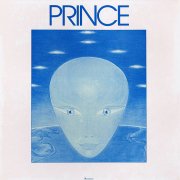 |
Prince (1982, 44.34) ***½/TVoyageDe la Terre à l'Ether Prince Les Fils du Ciel Univers |
Current availability:
Mellotron used:
Early '80s French band Prince are not only thoroughly obscure, but (of course) have had the appalling luck to have their name usurped by a later, enormously famous artiste, although, in fairness, Prince Rogers Nelson has every right to use his given name... Prince (France) were essentially an electronic outfit with progressive tendencies, so there's plenty of Tangerine Dream-style synth work (they sound more 'Berlin' than French contemporaries such as Heldon or Besombes-Rizet), although the female vocals on a couple of tracks, along with occasional piano, separate them from the many Tangs clones around at the time. Incidentally, the album's sides are subtitled Voyage De La Terre À L'Ether and Les Fils Du Ciel, for what it's worth. Oh and that's Magma's Stella Vander on vocals, fact fans.
Jean-Michel Desbouis (under whose name the album is filed at Discogs, although he's not listed as the artist on either sleeve or label) uses the Mellotron sparingly and only for choirs, with a short chordal part near the end of the near-side long Voyage, with even less of the same on De La Terre À L'Ether and Les Fils Du Ciel, making this a somewhat inessential album on the Mellotron front. So; believe me, you're not going to find this album easily, not least due to the confusion with their somewhat better-known namesake. It's not a bad record, but not something you should really go too far out of your way to acquire, to be honest, unless you're a completely mad EM collector; it's honestly not worth it on the Mellotron front, unlike the almost-equally obscure Quarteto 1111, to pick an unknown Mellotron classic at random. Ordinary.
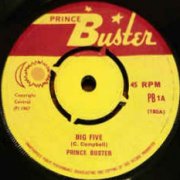 |
7" (1970) ***/T Big Five Musical College |
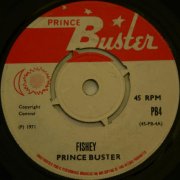 |
7" (1971) ***/T Fishey More Fishey |
Current availability:
Mellotrons used:
Cecil Bustamente "Prince Buster" Campbell (1938-2016) was one of reggae's best-loved figures, first recording in 1963. 1970's Big Five is an endearingly filthy number, describing an encounter with a young lady, no holds barred; Buster's conversion to Louis Farrakhan's Nation of Islam appears to have had no effect on his subject matter. Unsurprisingly, the song's lyrical content rather concerned his UK label's management, leading to an intriguing solution. Said solution gives us one of the oddest ever uses of a Mellotron, as (apparently) Ken Elliott (Second Hand, Chillum, Seventh Wave) amusingly censors the track, 'bleeping' out the occasional offending word by way of an atonal blast of (perhaps appropriately) MkII horns, not immediately obviously Mellotronic. Makes a change from badly-played pseudo-orchestral strings, eh?
Fishey (a.k.a. Holly Fishey, a.k.a. Holly Holly Fishey) b/w More Fishey appeared a year later, a really-not-very-good reworking of Neil Diamond's Holly Holly, featuring Elliott's raucous, distorted MkII brass on both sides (the flip is barely distinguishable from the 'A'), actually used musically this time, for a change. Both A-sides (Fishey picking up a fourth title, Fishey Fishey) were made available on 1971's Big Five LP, reissued in '93, so probably long out of print, while Big Five is on various compilations, notably 2001's Hush Up!!!. Incidentally, for better or worse, Buster heavily influenced Brit-reggae artist Judge Dread (name taken from a Buster single), with his run of mock-obscene hits, Big Six, Big Seven etc.
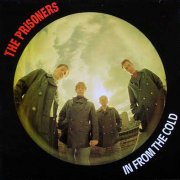 |
In From the Cold (1986, 33.48) ***½/½ |
|
| All You Gotta Do is Say Come Closer The More That I Teach You Mourn My Health I Know How to Please You Deceiving Eye In From the Cold Wish the Rain |
Be on Your Way Find and Seek Ain't No Telling Lesser Evil |
|
Current availability:
Mellotron used:
The Prisoners formed in 1982 in the musically fertile region of the UK sardonically known as the Thames Delta, or Chatham, Kent (one of the Medway towns), for those who know the area. The region has also spawned a million bands fronted by the notorious Billy Childish, which might give you some idea of where they were coming from, as should their name, referencing Patrick McGoohan's iconic '60s cult TV series. Usually referred to as a 'mod revival' band, The Prisoners were a far better thing than that suggests, sounding more like an updated Spencer Davis Group than anyone else, with a heavy '60s/soul/R&B thing going on.
In From the Cold, with its spy film connotations, was their original incarnation's last album, released on the inimitable Stiff label, for whom it must have been one of their last releases, as they folded that year. I've read that it's 'substandard', but sounds pretty good to my ears, with lashings of James Taylor's Hammond, then a most unfashionable instrument (vile times, the '80s) and a good set of songs, not least the lovely ballad Mourn My Health. It's this track that Taylor attacks with a Mellotron, though not to any great effect, with a brief cello part that doesn't particularly enhance the song. Full kudos for hiring and using one at the height of Mellotron loathing, though, not to mention putting it on a thoroughly decent album.
So; not much cop on the Mellotron front, but an excellent little pseudo-'60s R&B effort from an era of unmitigated shite. Your starter for ten: name ten artists who didn't go totally to shit in the '80s. Go on, I dare you. I'll start: Richard Thompson.
Official James Taylor Quartet site
 |
Tyrd am Dro (1975, 13.07) **½/TTyrd am DroTyrd Adre'n Ôl Does Dim Ar Ôl Y Cyntaf i'r Felin |
Current availability:
Mellotron used:
According to Discogs, Elwen Pritchard released just the one record, her Tyrd am Dro EP, in 1975. To be brutally honest, it's a drippy Welsh-language singer-songwriter effort, very much of its time. I wonder if it was intended as a taster for an album, then no-one bought it? Pritchard's pure tones are definitely an acquired taste, more musical theatre than rock club, at their least insipid on the countryish Does Dim Ar Ôl, which is hardly a recommendation.
Alwyn Humphries plays Mellotron (Rockfield Studios' M400?), with obvious strings on closer Y Cyntaf I'r Felin, although the strings on the title track are real. Oddly, this obscurity is available on Apple Music and other streaming platforms. Have Sain decided to put their back-catalogue out there, come what may?
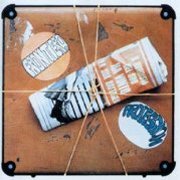 |
Frontiera (1972, 39.37) ***½/T½Ancora una NotteUomini e Illusioni Città Grande Incontro Anche io Sono un Uomo Un Mondo di Libertà Solo 1 Un'Ombra Che Vaga Solo 2 |
Current availability:
Mellotron used:
Procession's first album, Frontiera, can probably be described as 'heavy progressive', 1972 version, with a twin-guitar attack and no keyboard player, although it has quite a few acoustic passages. Much as I hate to say it, like so many bands of the era, they do sound a little dated, though hopefully not to the point where fans of '70s rock might be put off. Best track? Probably the longest, Un Mondo Di Libertà, although the Incontro/Anche Io Sono Un Uomo segue runs it a close second.
I originally wrote: "It's hard to tell who plays the Mellotron without reading Italian, but it looks like it's probably Luigi Filippo..." Well, Hubert tells me that I've actually credited the guy who made the cappuccinos. Dork! His sterling translation work tells me that they actually credit 'Il Corvo' (The Crow) from RRR (Raccomandata Ricevuta di Ritorno), i.e. Stefano Piermarioli. Anyway, he plays on the Incontro/Anche Io Sono Un Uomo pairing, with strings and what has to be dextrously-played flutes on the former and a lovely string part on the latter. Sadly, that seems to be it for the album and while it's rumoured there's some Mellotron on their second (and last) effort, Fiaba, that isn't the case. So; not a bad album, but a long way from full-blown prog and fairly minor in the Mellotron stakes, too.
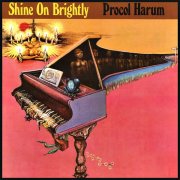 |
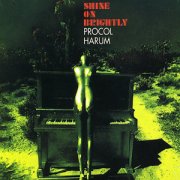 |
Shine on Brightly (1968, 39.12/65.36) ****/½ |
|
| Quite Rightly So Shine on Brightly Skip Softly (My Moonbeams) Wish Me Well Rambling on Magdalene (My Regal Zonophone) |
In Held 'Twas in I a) Glimpses of Nirvana b) 'Twas Teatime at the Circus c) In the Autumn of My Madness d) Look to Your Soul e) Grand Finale |
||
Current availability:
Mellotron used:
I've always been highly resistant to the idea that UK prog pioneers Procol Harum might have used a Mellotron, as every 'example' I've been given (notably A Salty Dog) has turned out to be a dud, making it all the more surprising that someone (namely Max) has finally hit the Procol Mellotronic jackpot. 1968's Shine on Brightly was their second album, notable for the inclusion of arguably the first true progressive epic, the seventeen-minute In Held 'Twas In I (named for the first word uttered in each of its five sections), memorably covered decades later by Transatlantic, albeit sans the 'difficult' 'Twas section. The rest of the album's no slouch, either, other highlights including opener Quite Rightly So, the excellent title track and Magdalene (My Regal Zonophone), although I could've done without the bluesy Wish Me Well and Rambling On.
Either band leader Gary Brooker or organist Matthew Fisher plays what Tony tells me is probably MkII Mellotron church organ (very different to the later M400 version) on the second half of Magdalene (My Regal Zonophone); I can only assume the reference to their record label is an obscure in-joke? Do you bother with this for its Mellotron use? Of course you don't; it's taken nearly fifteen years of running this site to spot their minimal use and then only because it was pointed out to me. However, anyone interested in British psych/early prog who hasn't already heard this needs to, pronto, if only for its epic.
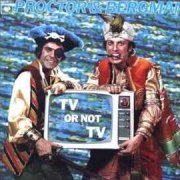 |
TV or Not TV (1973, 40.25) ***/T |
||
| Insert Here Channel 85 Sign-on Escaping From the Declining Fall of the Roaming Umpire, Chapter XIII Police Lineup Salute My Boots The Channel 85 Story Cirque Internationale |
Communist Love Song Channel 85 Reply Tobor Radar Robot The Pills Brothers on Drugs The MZ Information Society Bring Us Together Nasi Goring Our Lady of the Torch |
Emergency Alert Emerging Fall of the Roaming Umpire, Program VII Give Up This Day Channel 85 Sign-Off Insert Here |
|
Current availability:
Mellotron used:
For those of you/us who aren't American, Phil Proctor and Peter Bergman were half of fêted Goons-influenced comedy troupe The Firesign Theatre; if you haven't heard them, imagine a US version of contemporaries Monty Python, written and performed by American intellectuals as against British Oxbridge types, their humour filtered through American TV and drug culture. Does this leave you any the wiser? Thought not. Starting on radio, they quickly diversified into LPs, releasing thirty or so between 1968 and 2010, not including solo projects/offshoots.
Speaking of which... 1973's TV or Not TV (ho ho!) was the first of three Proctor/Bergman albums; Firesign fans and reviewers more knowledgeable than myself say that it's more focussed than most of the group work, which makes me wonder what the hell that's like. [n.b. Chaotic]. The concept, such as it is, is of a mythical cable TV station, Channel 85; the album is sequenced like a particularly bizarre broadcast, complete with interviews, readings and musical interludes (Communist Love Song is most amusing). The humour is... distinctive. Much like Python (or, more pertinently, The Goons), I suspect you had to grow up with this stuff to really find it funny; its self-referential asides and obscure references leave many listeners out in the cold, which isn't to denigrate it in any way, merely to say that it's an acquired taste. Sample dialogue: "Now, I'm going to repeat that again for those of you who are on drugs". Does that sum this up?
An unknown musician adds a little Mellotron to the album, weirdly, with a graunchy cello line in Police Lineup, complete with pitchbend, string and brass chords in Salute My Boots and clunky flute notes in Tobor Radar Robot. This isn't the first comedy album to make it onto Planet Mellotron, but it might just be the weirdest. Rumour has it that at least one Firesign album also contains Mellotron; I've actually reviewed this from YouTube, so a little searching and a few hours (groan) of listening may reveal some more. A project for a rainy day, methinks. n.b. After a rainy day, I've now listened to their entire early '70s output and there's nothing obvious, for what it's worth.
Official Firesign Theatre site
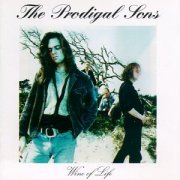 |
Wine of Life (1993, 53.09) ***½/T½ |
|
| Last Song Wine of Life You Still Think Shut Your Mouth That's When I Love You In Another Land What About Yourself Jimi |
Waiting Gone Dark Days |
|
Current availability:
Mellotron used:
Holland's The Prodigal Sons are another outfit in the grand Dutch tradition of accurately recycling American musical traditions for the home market (note: this is not a snarky put-down), alongside Golden Earring's hard rock and a host of country acts, amongst others. I can't tell you much about them, other than that they released at least two albums, the earlier of which, 1993's Wine of Life, sounds like a Euro version of The Georgia Satellites, or maybe Jason & the Scorchers: riffing Americana, a straight cross between country- and hard rock, top tracks including opener Last Song, That's When I Love You, the storming Gone and epic closer Dark Days.
Someone called (or calling himself) DiMaestro plays Mellotron on two tracks, with strings on In Another Land, only properly audible at the end and an effective flute part, shifting into strings on Dark Days, unlikely to be samples, in those pre-easily-available sample-set times. In all honesty, I'd never heard of The Prodigal Sons until their Mellotron usage became an issue, but I'm happy to've made their musical acquaintance. Worth the effort.
See: Erwin Nyhoff
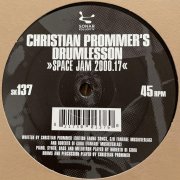 |
12" [as Christian Prommer's Drumlesson] (2007, 11.16) ***/½ Strings of Life Space Jam 2000.17 |
 |
Drumlesson Zwei (2010, 67.39) ***/T |
|
| Sandstorms Groove la Chord Sleepy Hollow Isolated Syncopation Acid Eiffel Distorted Rudiments Oxygène (Part IV) Jaguar (Part One) |
Jaguar (Part Two) Distant Rhythm High Noon Sandcastles |
|
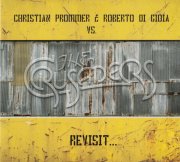 |
Revisit... [as Christian Prommer & Robert di Gioia vs. the Crusaders] (2011, 59.12) ***/½ |
|
| Lilies of the Nile Freedom Sounds (2) Time Bomb Carnival of the Night Different Sides of Music Message From the Innercity Freedom Sounds (1) |
Blues Uptight Sweet'n'Sour Interlude One Double Bubble Creole Joes Talk Night Faces |
|
Current availability:
Mellotrons used:
The Munich-based Christian Prommer is a DJ and percussionist, operating since the late '80s. Drumlesson is his jazz/techno project, combining the two forms into a critically-acclaimed unique fusion, simultaneously channelling the '60s and the '90s into an instrumental stew of organ, synths, beatboxes and hand drums. 2007's Strings Of Life 7" is neither here nor there, but its near-seven minute flip, Space Jam 2000.17, is a heady brew of jammed-out piano and synths, featuring a brief blast of Mellotron choirs, plus possible manipulated choirs earlier in the piece. Unsurprisingly, 2010's Drumlesson Zwei is the project's second full-lengther, a decent enough effort, albeit a good twenty minutes too long to sustain (this) listener's interest. Despite its heavy rearrangement, I recognised track seven before I even looked at its title: a groovy cover of Jean Michel Jarre's massive 1977 hit Oxygène (Part IV). Roberto di Gioia plays real-sounding Mellotron on Jaguar (Part Two), with a brass melody and stabbed choir chords, although that would appear to be it.
2011's Revisit... is credited to Christian Prommer & Robert di Gioia vs. the Crusaders and appears to sit somewhere between a tribute to and a remix of Houston's titular jazz/funk legends, who were always far better than their brief (but highly successful) flirtation with disco might suggest. The bulk of its material comes from The Crusaders' pre-disco '70s records, with a handful of Prommer and di Gioia's own pieces thrown in, some based on Crusaders interview segments set to music. Does this sound like The Crusaders? Not really, no, although the jazzy Blues Uptight (the earliest composition covered) must bear some resemblance to the original. The cheesy synth brass on Time Bomb (originally from '74) and the more contemporary electronica on most tracks typify the duo's approach, adding later-yet-still-retro elements to older material, not least di Gioia's credited upfront Mellotron brass (?) and background choirs on Freedom Sounds (1).
These are albums for hipster types who feel the need to grow out of their clubbing past, although I imagine they make for good stoner listening, too. Zwei has one reasonable Mellotron track with a refreshingly different approach, although Revisit's is less worthy, so neither are really worth it for that alone.
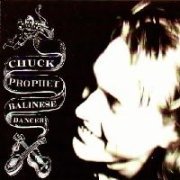 |
Balinese Dancer (1993, 42.41) ***/0 |
|
| Baton Rouge 110° in the Shade Savannah Balinese Dancer Starcrossed Misbegotten Love One Last Dance Who am I Foolin Heart Breaks Like the Dawn |
Angel Somewhere Down the Road |
|
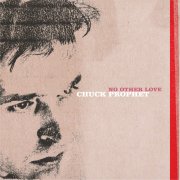 |
No Other Love (2002, 43.28) ***/½ |
|
| What Can You Tell Me After the Rain I Bow Down and Pray to Every Woman I See Run Primo, Run Storm Across the Sea No Other Love Elouise That's How Much I Need Your Love |
Summertime Thing What Makes the Monkey Dance Old Friends |
|
Current availability:
Mellotron/Chamberlin used:
Chuck Prophet (yes, it's his real name) used to lead Green on Red, '80s precursors of both the new psychedelia and Americana before either was fashionable, leading to their untimely demise in the early '90s. Prophet has gone on to a lengthy solo career, with the latest news (early 2006) being that Green on Red are having another go. Balinese Dancer was Prophet's second album and doesn't sound a million miles away from his alma mater, countryish material like 110° In The Shade and Starcrossed Misbegotten Love mixed with rockier propositions such as Savannah. I even detect echoes of legendary late-'70s Noo Yawkers Television in places, though that could be simply that distinctive Fender-through-Fender guitar sound. Mellotron on one track, Somewhere Down The Road, from Prophet, although I have to say that it's completely inaudible, presumably disappearing under esteemed guest Al Kooper's unusual Hammond B-2.
2002's No Other Love is, well, another Chuck Prophet album, possibly at its best on I Bow Down And Pray To Every Woman I See, with its slippery strings, Elouise and closer Old Friends. It's hard to tell what Jason Borger's doing with the (studio?) Chamberlin on Summertime Thing: subliminal strings? The pedal steel's real... Anyway, Prophet's singing to the gallery here, so if you like his earlier work, you'll probably like this.
See: Samples etc.
 |
Floodplain (2024, 55.14) ***/TTFloodplainArise (a Silence is Missing) A Stream That Flows Fire Flowers Estuary Crystal Ships Faun Halliggye Spring's Dream (the Ivy Covered Tower) |
Current availability:
 |
|
| Zarquon's borrowed EMI M400 | |
Mellotron used:
Originally known as Zarquon, The Prophets of Zarquon (named for a deity with punctuality issues from The Hitchhiker's Guide to the Galaxy) are, effectively Mike "Lord Zarquon" Peakman's solo project. Zarquon fall fairly and squarely into the modern micro-genre of British millennial psychedelia, influenced as much by alternative artists from the '80s and '90s (when its chief proponents were young'uns) as by those of the late '60s, less the Airplane and the Dead than All About Eve, the less quirky end of Kate Bush's catalogue and '80s neo-prog survivors Solstice. Their fourth release as the Prophets, 2024's Floodplain, might be best described as female-fronted psychedelic pop/rock, at its best on Arise, Estuary and Faun, perhaps.
Mike borrowed a rare EMI M400 (see pic) belonging to Stuart Snowden, using it alongside several different sample sets. We get chordal strings on the title track (the flutes are sampled), barely-audible cellos and (very distant) choirs on Arise, Hammond (unusually) and strings on Estuary and strings on Faun and Spring's Dream, all other sightings being one or more of a Memotron, MTron Pro and Nord's sample set. Does it add to the overall effect? How could it not? It's used with reasonable restraint, while the sampled flutes fool the ear more than once, notably on closer Spring's Dream. Zarquon are your quintessential festival band, probably best experienced live; see you down the front at Kozfest?
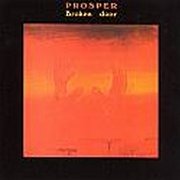 |
Broken Door (1975, 39.39) ***½/T½BeginningBurning in the Sun Broken Door Dance of an Angel Your Country Birds of Passage Master's Inspiration Where the Sun Touches the Water |
Current availability:
Mellotron used:
Prosper pedalled a not-very Germanic kind of jazz-prog crossover, with English-language vocals and hints of King Crimson in places, not to mention the fairly ubiquitous Krautrock element that seemed almost obligatory in Germany at the time. Broken Door isn't the easiest listen ever, but it contains some sublime moments and is the sort of album that rewards repeated listening.
There's only two obvious Mellotron tracks here, with slightly discordant strings on Beginning and Broken Door, matching the Frippian guitar work. As a result, I can't really recommend this on the Mellotron front, but if you like your jazz rock, you'll be in the proverbial seventh heaven.
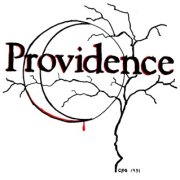 |
Providence (2013, recorded 1981-82, 52.58) ***½/TTT½ |
|
| Aquatic Mirrors Until... Until is Here Burg of Rhyme Stay Right Here Down Range Alien Interviews A Cybernetic Nightmare Where's the Snake? |
Shutter Speed Epic Chaos Violence is Golden Superstitions of Superman Voices Violence Reprise Millenium Mirrors |
|
Current availability:
Mellotron used:
After his mid-to-late '70s experiments, Craig P. Smith formed Providence (named for the Crimson track, rather than the town for which the Crimson track was named), Their recordings have finally been made publicly available, allowing us to hear that the band played a kind of early '80s new wave-influenced prog, influences clearly including '70s and Discipline-era Crimson and Van der Graaf Generator, along with snippets of Saga and even British neo-prog, although I've no idea what recordings may have made their way across the Atlantic by this point. Merely synchronicity? Stylistically, opener Aquatic Mirrors is an analogue synth-lover's dream, Stay Right Here features that new wave influence in its clean guitars, Down Range has something of the post-punk sector about it, while A Cybernetic Nightmare sounds like contemporaneous Hawkwind (who also took current influences on board in the early '80s).
Craig and Mark Fasula play Craig's M400 on much of the album, with choirs on Aquatic Mirrors, strings on Until... Until Is Here, cellos, slightly screechy strings and background choirs on Burg Of Rhyme, string and flute melodies, with occasional background choirs, on Stay Right Here, more phased strings on Alien Interviews, choirs on A Cybernetic Nightmare and muted choirs on closer Millenium Mirrors, although, perhaps surprisingly, nothing on the nine-minute, four-part Epic Chaos, while the strings on Where's The Snake? are an Ensoniq. As with Craig's other downloadable albums, since this won't cost you a penny (dialup hopefully having gone the way of the dinosaurs), you might just as well grab a copy to see what you think. For what it's worth, I'm of the opinion that there's much to like about this material, not least plenty of Mellotron. Worth hearing.
See: Eternal Void | Craig P. Smith
 |
Sogni in una Goccia di Cristallo (2011, 53.03) ***/TT½Preludio ai SogniClaustrofobicaria pt 1 Asia Libera Mente Sola Il Gioco di Giada L'Occhio del Diavolo Farfalla Fantastica Claustrofobicaria pt 2 |
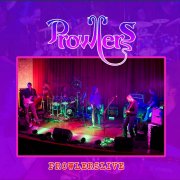 |
ProwlersLive (2013, 64.47) ***/T½ |
|
| Claustrofobicaria (pt 1) La Grande Quercia I-Il Condottiero II-Una Cavalcata Nei Ricordi III-Epilogo: Storia del Tredici Asia Ande Libera Mente Sola Farfalla Fantastica |
Guardando Dentro Te Sweet Metamorfosi I-Overture II-I'm So Different, I'm So Lonely III-Dolce Metamorfosi IV-L'Ultima Metamorfosi Claustrofobicaria (pt 2) |
|
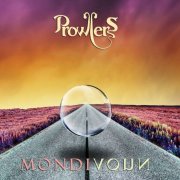 |
Mondi Nuovi (2014, 58.28) ***½/TT½ |
|
| Mondi Nuovi Viva... Ancora Guardando Dentro Te La Danza di Madre Natura Melaquadro Giovane Falco Capriccio in A- Ultima Notte |
Disordinaria Soldato Stanco |
|
 |
Navigli Riflessi (2017, 71.05) ***½/TT½ |
|
| ...Delle Terra... dell'Acqua Risveglio Navigli, pt. 1 Il Ricordo di un Uomo Danzante Oscura Verita' Navigli, pt. 2 Il Ponte Acqua Lenta |
Navigli, pt. 3 Riflessi L'Ultimo Filo d'Erba Navigli, pt. 4 |
|
 |
Orchidea (2024, 52.04) ***/T½OrchideaUniversi Paralleli Clorofilla Il Bao della Luna Bocche d'Ambra Ultimo Viaggio Non Sei Mai Andato Via |
Current availability:
Mellotrons used:
The original Prowlers released three albums in the '90s, then split, Tilion rising from their ashes. Over a decade later, they've opted to give it another go, presumably taking advantage of a gap in Tilion's schedule, releasing Sogni in una Goccia di Cristallo in 2011. If you're expecting any kind of 'typical' Italian progressive album, expect again: this opens with the near-ambient Preludio Ai Sogni, only to lurch sharply to one side for the funky, mainstream female-fronted pop/rock of Claustrofobicaria Pt 1, the more typically progressive Asia, the thirteen-minute Libera Mente Sola and the experimental, synth-heavy L'Occhio Del Diavolo. Schizophrenic? Ever so slightly... I presume what we get is what the band were after, but had I been involved in the album's production, I might've chopped about ten minutes and made a much better album out of what was left. Alfio Costa plays his trusty M400, with strings on opener Preludio Ai Sogni and closer Claustrofobicaria Pt 2, flutes on Libera Mente Sola and flutes and strings on L'Occhio Del Diavolo, all to good effect.
I'm afraid that 2013's ProwlersLive rather proves my point about the band. Covering most of the band's (admittedly limited) career, it includes material not only from 1997's Sweet Metamorfosi, but also Mother & Fairy, from two years earlier. Sadly, too much of it skates perilously close to the kind of MOR balladry that the softer end of prog has always been in danger of emulating, although the more recent material is an improvement. Although Costa hauled his machine up onto stage (along with his Hammond and an in-yer-face-with-a-weird-patch MiniMoog), he barely uses it, giving us no more than a few seconds of background strings at the end of La Grande Quercia, an upfront flute melody on Asia, what sounds like string section on part two of Sweet Metamorfosi, I'm So Different, I'm So Lonely and a few seconds of strings at the end of Claustrofobicaria (Pt 2), to close the album. The following year's Mondi Nuovi is, unsurprisingly, a mixed bag, several tracks sailing too close to MOR again. However, material such as Viva... Ancora, Giovane Falco and Ultima Notte pull the album out of danger, although Prowlers are probably always going to sit at the less potent end of the genre. Plenty of Mellotron from Costa, with an upfront string part on La Danza Di Madre Natura, choirs on Giovane Falco, strings on Capriccio In A-, flutes on Ultima Notte and Disordinaria, although the strings on Guardando Dentro Te sound non-Mellotronic to my ears (it actually sounds like a real cello). Not a classic, then, but their best yet.
2017's Navigli Riflessi gives the impression of being a concept effort, not least with four parts of Navigli spread across the record and, of all things, a recurring bagpipe theme. Once again, given its excessive length, this would've been improved by a good edit. Sad to say, it would also have been improved by a singer who understands the concept (speaking of concepts) of 'singing in tune'; Laura Mombrini wanders off pitch more times than I'm able to count. Stylistically, this is probably less varied (or variable) than their previous releases, making for a more coherent record, probably at its best on Risveglio, Navigli, Pt. 2 and Riflessi. Costa adds his Mellotron to a handful of tracks, with a string part on Risveglio, chordal flutes on Il Ricordo Di Un Uomo, background strings on Danzante Oscura Verita', what sounds like a string section line on Il Ponte, a flute line on L'Ultimo Filo D'Erba and an eccentric flute part on closer Navigli, Pt. 4.
I can't honestly say I find 2024's Orchidea an improvement, frankly. I'm really not sure exactly what the band are trying to do, and I'm not certain they do, either. This definitely has its moments, chiefly the 'side-long' Ultimo Viaggio, which powers along nicely, but all too much of it wanders along in a balladic kind of way without really getting anywhere. Not that much Mellotron, either, with a brief string part on Universi Paralleli, the same on Il Bao Della Luna, a flute line on Bocche D'Ambra and flute and string parts on Ultimo Viaggio.
See: Samples etc. | Alfio Costa | Tilion | Fanfare for the Pirates
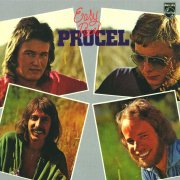 |
Easy Pieces (1975, 27.50) ***½/TT½Speedy JudyTuesday's Not the Day Will Good Salvation Goodbye Prima Ballerina Terrible Terry To You (Instrumental) |
Current availability:
Mellotron used:
Prucel were a one-off Norwegian outfit, Popol Vuh's Pete(r) Knutsen being the only 'name' member. 1975's exceptionally brief Easy Pieces is a kind of pop/prog effort, not unlike a Scandinavian Kayak, maybe, at its best on the slowburn Will, Prima Ballerina and excellent closer To You (Instrumental), which carries more than a whiff of Focus about it (note: not a criticism), although the barroom nonsense of Tuesday's Not The Day and the prosaic boogie of Terrible Terry do the band no favours.
Knutsen plays keys, including his Mellotron, with strings on opener Speedy Judy's second half, strings and a flute solo on Will and subtle strings on Prima Ballerina and To You (Instrumental). However good the best material is, I get the impression of a hastily-convened band without enough songs for a full album, bolstering several decent tracks with a couple of duds, knocked out in an afternoon to make the whole thing up to album length.
 |
Atomic Dogs Don't Bark (2002, 43.14) ***/TTT½MutinyIf I Only Had Time Under Water World Shapeshifter Atmosfear |
Current availability:
Mellotron used:
Pseudo Sun were formed in 1994 by ex-Darxtar bassist Juba Nurmenniemi, playing a raw form of space-rock; unsurprising, given that they've subsequently toured with Nik Turner. After an initial release, 1997's Future Memoirs, Atomic Dogs Don't Bark came together over a period of several years, work beginning in '98, although much of that recording was scrapped, the end result featuring different members and new material. Pros? Most of the album drives along nicely, probably at its best on Under Water World. Cons? Nurmenniemi's awful voice. Vocals are traditionally the poor relation in space-rock outfits, but this guy couldn't carry a tune in a bucket.
Nurmenniemi plays what sounds like real Mellotron, with a repeating descending string line on opener Mutiny, choirs at the end of the lengthy If I Only Had Time, flutes and strings on Under Water World and choirs on Shapeshifter, while the even lengthier Atmosfear features a string line doubling the guitar, before being smothered in string chords to the end. Plenty of Mellotron, then, although it's slapped all over some tracks in deeply unsubtle fashion, actually reducing its impact. Some people are never happy, eh?